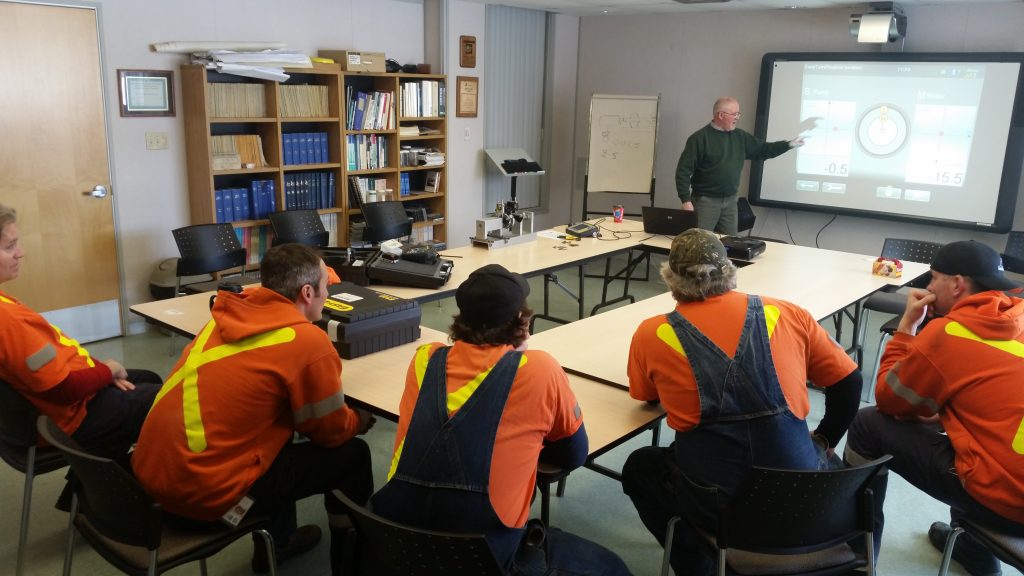
An Opportunity for a Culture Change
During these uncertain times it is quite interesting to see how different people react to the circumstances we are in. Like any situation – some people have a glass half full, some a glass half empty. However, we need both types of people in the workplace. One may be overly enthusiastic, while another has a more conservative approach. For an individual, we say it's the nature of a person.
September 7, 2020 | By John Lambert
 Photo credit: John Lambert / BENCHMARK PDM Inc.
Photo credit: John Lambert / BENCHMARK PDM Inc. 
Photo credit: John Lambert / BENCHMARK PDM Inc.
Collectively, in a plant’s maintenance group, we call it the culture of the group. Culture being the behaviours, beliefs, and values,p they share as a group. Most maintenance groups, have at least two or three cultures, even though they are one group.
There is (upper) management culture – plant, production, maintenance, engineering, and reliability managers. Next, middle manager culture – with supervisors, foreman, planners and leadhands, these are the front-line supervisors. Finally, the shopfloor group culture – made up of trades/craftsmen, millwrights, labourers, and lube techs. In some organizations they can work effectively together; in others they don’t. It becomes an “us and them” situation. It is usually at least two camps.
We see this “us and them” mentality a lot during precision maintenance and machinery installation training. For example, it’s a rarity for front-line supervision or management to sit in on training programs. When the doors are closed and it’s just the tradesmen/women, it begins with “we just do what we’re told,” but by the end of the day we have learned to trust one another and more of the true culture of the shop-floor group comes out. Like most people, they like an opportunity to vent to someone who understands their issues.
Personally, I was a maintenance mechanic/millwright and worked as a maintenance lead-hand, foreman, supervisor, and a training instructor. Therefore, I understand tradesmen/women’s concerns, and concerns of the front-line supervision. The underlying tradesmen/women concerns are: they are not supported, they are not listened to, and are not involved.
Being between upper management and the tradesmen is not easy. For example, one of the reasons they do not sit in on the training is because someone will bring up a situation where a machine was not correctly repaired yet was put back into service. There could be several valid (or not) reasons that the machine was put back in service.
Therefore, an opportunity is coming, as there will be a roll back in maintenance budgets, because most companies will lose revenue with this pandemic. There should be no surprise if staff is cut back.
It’s unfortunate, but it’s reality. The reason why is maintenance is the easiest budget to control and reduce. The opportunity is being able to work together. It’s understanding that the most important thing is to get the job done as efficiently as possible. Use the skills that we have, not only to maintain but to improve.
Now is the time to build the team, because we are “all in this together” and we need each other. A simple way to start is by implementing a precision maintenance program. With precision maintenance you concentrate on ensuring failure prevention and defect elimination in the tasks performed on your machines and equipment by your maintenance and operations people. We train on this and we call it Measure, Analyze, Act and Document (MAAD).
The MAAD concept can be used by anyone in the maintenance and reliability industry when trying to improve your maintenance processes. It is also a method that we promote and believe should be followed whether you’re a millwright, mechanic, maintenance manager, supervisor, or reliability expert involved in machinery installation.
Measurement: find a simple and effective way to measure your processes (to control a process, you have to measure it).
Analyze: the issue as a group. Asking the question “why”and you need truthful, honest answers from everyone.
Act: if necessary.
Documentation: If you don’t document and you need to look back to analyze, you are only guessing as to what happened.
You can keep this process as simple as you want. For example, you could review and measure the effectiveness of your PM program. The action taken may be to rewrite the PM but whoever does the actual work should be involved with the re-write.
Sometimes a dynamic individual or program can change the culture of a work group but remember, it takes a team to sustain it. To move ourselves forward from this pandemic we will need our communities inside and out of the workplace to work together and build a stronger culture. MRO
___________
John Lambert is the President of BENCHMARK PDM. He can be reached at john@ benchmarkpdm.com.
Advertisement
Stories continue below
